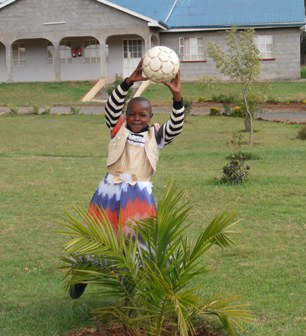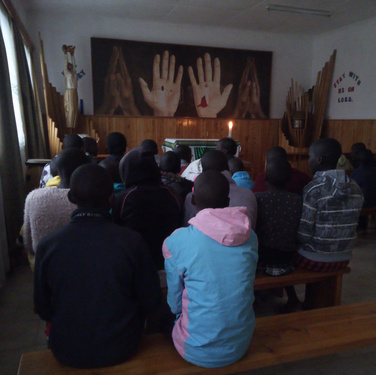activities
Shelter
The home has a total population of 93 children, 48 girls and 45 boys. All are provided with standard accommodation facilities approved by the Public Health Office. The children are cared for by government-approved housemothers and housefathers. They live in family units of 12 children under a house parent and share life as a family. The houseparents are entrusted with the daily welfare and upbringing of the children.
Medical
The children are offered frequent health checkups at the County referral hospital. The home has also established referral hospitals where they are offered subsidized rates. 80% of the children are on antiretroviral therapy. These are life-saving drugs which at the moment are provided for free by the government. However, for those children who develop resistance to the first line of treatment, the home has to purchase second line of treatment at KSH 4,000 per child per month.
Education
Currently, our home hosts 89 children, 28 of which are in the 1st level of primary education in the neighbouring public schools while 37 are in secondary school and 4 children are in preschool (as of 2021). The home has seven youths who completed their secondary education and are now undertaking various courses in different colleges in the country.
While primary education is highly subsidized by the government, secondary education is expensive with annual fees of KSH 40,000 per year.
spiritual support
The children are provided with spiritual nourishment within the home. The caretakers go through formation in order to support the children adequately without intimidating their spiritual growth. The home community also participates in the spiritual life of Nyahururu Catholic Parish.
food
The children are provided with a nutritious diet that supports their suppressed immunity. A lot of the food consumed in the home is contributed by the community. However, the nutritional content and volume depend on the season and is limited to the crops grown in the area. The home manages a kitchen garden and keeps some livestock to cut on food costs, supplement the diet and provide an opportunity for the children to participate in some chores as they would do back in the community.
social support
The children are offered guidance and counselling services in the home on a weekly basis and whenever a need arises. They are also empowered on personal responsibility and general life skills. They participate in extracurricular activities within and outside the home with other children. The caretakers go through monthly continuous learning to constantly renew their motivation and refresh their knowledge and skills in working with the children.
outreach programme
The home reaches out to other HIV positive children and community through awareness-raising and community mobilization. This has been instrumental in sustaining community involvement and participation in support of the children and other children in need in the community. Through the outreach programme the children are also able to keep in touch with their relatives and the community at large.
management
The home is managed by a committee of 15 volunteers. These are representative of the community and give a strong link between the home and the community. This creates a sense of ownership of the home by the immediate community. The home is currently administered by 4 sisters of the Dimesse Congregation and 1 layperson. They live under the same roof with the children and oversee the day to day management of the home.
community participation
The community participants actively in all aspects of the Home.Young people offer voluntary services, different people volunteer professional services and one-third of food and clothing budget is contributed by the community through in kind contributions. This has sustained active relationship between the Home and the community.
Reintegration and disengagement
Talitha Kum strives to reintegrate its children into their families. Once they have stabilized in our home and the conditions in their original homes are conducive, the children can go back to live with their families. In some cases, Talitha Kum provides continuous support to those children until their families can provide for them on their own.
In other cases, the child has finished education and started her/his own life, so Talitha Kum disengages them and keeps them as friends.
FORECASTING
In December 2008, when all the children went home for the Christmas holidays one child did not come back. The grandmother felt that the child was no longer vulnerable (in terms of immuno-suppression) and she was ready to care for his grandchild. After several meetings with the grandmother and an assessment of the situation it was agreed she was ready to care for the child.
Talitha Kum envisages a future where the children will find a conducive home where the children can be reintegrated with the community and thereby create space for other destitute HIV positive children. However, a special outreach programme was established to ensure the wellbeing of reintegrated children.









